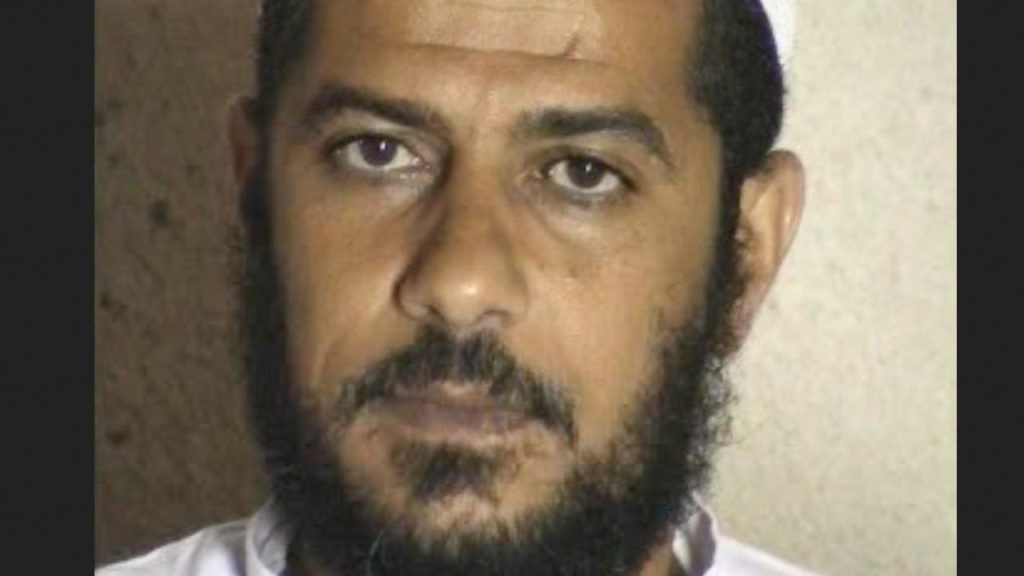Australia/Israel Review
Scribblings: Al-Qaeda in Iran
Nov 25, 2020 | Tzvi Fleischer

On Nov. 13 the New York Times reported that, according to intelligence officials, on Aug. 7 Israeli operatives working at the behest of the United States had killed Abdullah Ahmed Abdullah in Teheran. Abdullah is better known as Abu Muhammad al-Masri, and was al-Qaeda’s second in command, first in line to succeed current al-Qaeda leader Ayman al-Zawahiri, himself rumoured to have died a month ago.
Al-Masri has been indicted in the US as the alleged mastermind behind the bombings of the US Embassies in Kenya and Tanzania in 1998, which killed 224 people. Israeli sources say he had been planning attacks on Israeli and Jewish Diaspora targets when he was killed.
The information about this assassination in August raises a lot of potential political implications and questions – why was this news leaked now, what does it say about Israel’s intelligence capabilities and cooperation with the US, etc.? However, perhaps the most important thing to note about the killing was its location – Teheran.
Al-Masri had actually been living in Iran since 2003, and reports say that, while initially kept under some sort of house arrest, he has been largely free of restrictions since 2015.
Somehow, a lot of supposedly sophisticated analysts seem to be convinced that Shi’ite Iran, the world’s foremost state sponsor of terrorism, is a useful ally against Sunni terrorist groups like al-Qaeda and Islamic State, on the principle that Sunni jihadists threaten Iran and “the enemy of my enemy is my friend.”
Yet al-Masri was actually part of a major al-Qaeda operational hub in Iran which evidence clearly shows Teheran not only tolerated but aided. This hub also included Osama bin Laden’s late son Hamza; Abu Hamza al-Khalidi, al-Qaeda’s “Military Commission Chief”; Saif al-Adel, another key lieutenant of Zawahiri; Atiyah Abd al Rahman, al-Qaeda’s “Operations Chief” killed in 2011 in Pakistan; and Yasin al-Suri, a senior al-Qaeda facilitator and financier.
Here are just a few examples of the public intelligence available about al-Qaeda’s hub in Iran:
• In 2010, General David Petraeus, then commander of the US Central Command, reported that al-Qaeda “continues to use Iran as a key facilitation hub, where facilitators connect al-Qaeda’s senior leadership to regional affiliates.”
• In 2011, the US State Department’s annual country reports on terrorism referred to al-Qaeda’s Iranian hub as the terrorist group’s “core facilitation pipeline”, which allowed the jihadist organisation to shuttle personnel and funds throughout the Middle East and South Asia.
• On Feb. 16, 2012, the US Treasury Department designated the Iranian Ministry of Intelligence and Security (MOIS) as a terrorist organisation for its support of al-Qaeda, as well as other terrorist organisations. According to the Treasury, “MOIS has facilitated the movement of al Qa’ida operatives in Iran and provided them with documents, identification cards, and passports. MOIS also provided money and weapons to al Qa’ida in Iraq (AQI)… and negotiated prisoner releases of AQI operatives.”
• In July 2018, a United Nations panel of experts, called the Analytical Support and Sanctions Monitoring Team, found that, “Al-Qaida leaders in the Islamic Republic of Iran have grown more prominent, working with A[y]man al-Zawahiri and projecting his authority more effectively than he could previously.”
But here’s perhaps the strongest evidence of all. In 2007, late al-Qaeda leader Osama bin Laden himself wrote a note criticising one of al-Qaeda’s constituent groups, the Islamic State of Iraq (ISI) – which of course later broke away to become the core of Islamic State. In it he admonished the group for threatening Iran, saying:
“I have a few remarks concerning the matter of your threats to Iran… You did not consult with us on that serious issue that affects the general welfare of all of us… for as you are aware, Iran is our main artery for funds, personnel, and communication, as well as the matter of hostages.”
Yet despite overwhelming evidence, including testimony from Osama bin Laden himself, many analysts and officials seem to think they know better – and Shi’ite Iran would never cooperate with Sunni jihadist groups. Of course, Teheran has a wary and complex relationship with al-Qaeda – but nonetheless evidence is overwhelming that an alliance of sorts exists. This evidence cannot be wished away, and the al-Masri killing highlights this reality.
STEM-winders
In keeping with this column’s tradition of reporting on the good news that has been emerging from Israel in recent years concerning the growing integration and success of Arab Israelis, here is another positive statistic.
According to the Israeli NGO Tzofen, which seeks to facilitate the integration of Israeli Arabs into the hi-tech sector, the number of Israeli Arabs studying STEM subjects (science, technology, engineering and mathematics) has risen sharply over recent years. Its statistics show that in the 2015/16 academic year, 2,691 Israeli Arab students were studying STEM subjects, but last year this had risen to 4,534. That’s an increase of 68% in just four years. Total Arab undergraduates rose only 30% during those same years.
Arab Israeli STEM students have not quite reached parity with their Jewish compatriots – Israeli Arabs are currently 15% of STEM students in Israel, but make up 21% of the population – but they are on track to get there in a few short years if recent trends continue.
STEM education is of course a key basis for Israel’s huge success as a hi-tech innovation hub. For a variety of reasons, Israeli Arabs have not always fully benefited from the hi-tech boom in Israel over the past two decades, but they certainly now seem poised to do so.
It’s yet another sign that, despite ongoing challenges, Israeli society is evolving to integrate the Jewish majority and Arab minority like never before, with all Israelis gaining a great deal from the process.
Tags: Al-Qaeda, Arab Israelis, Iran






